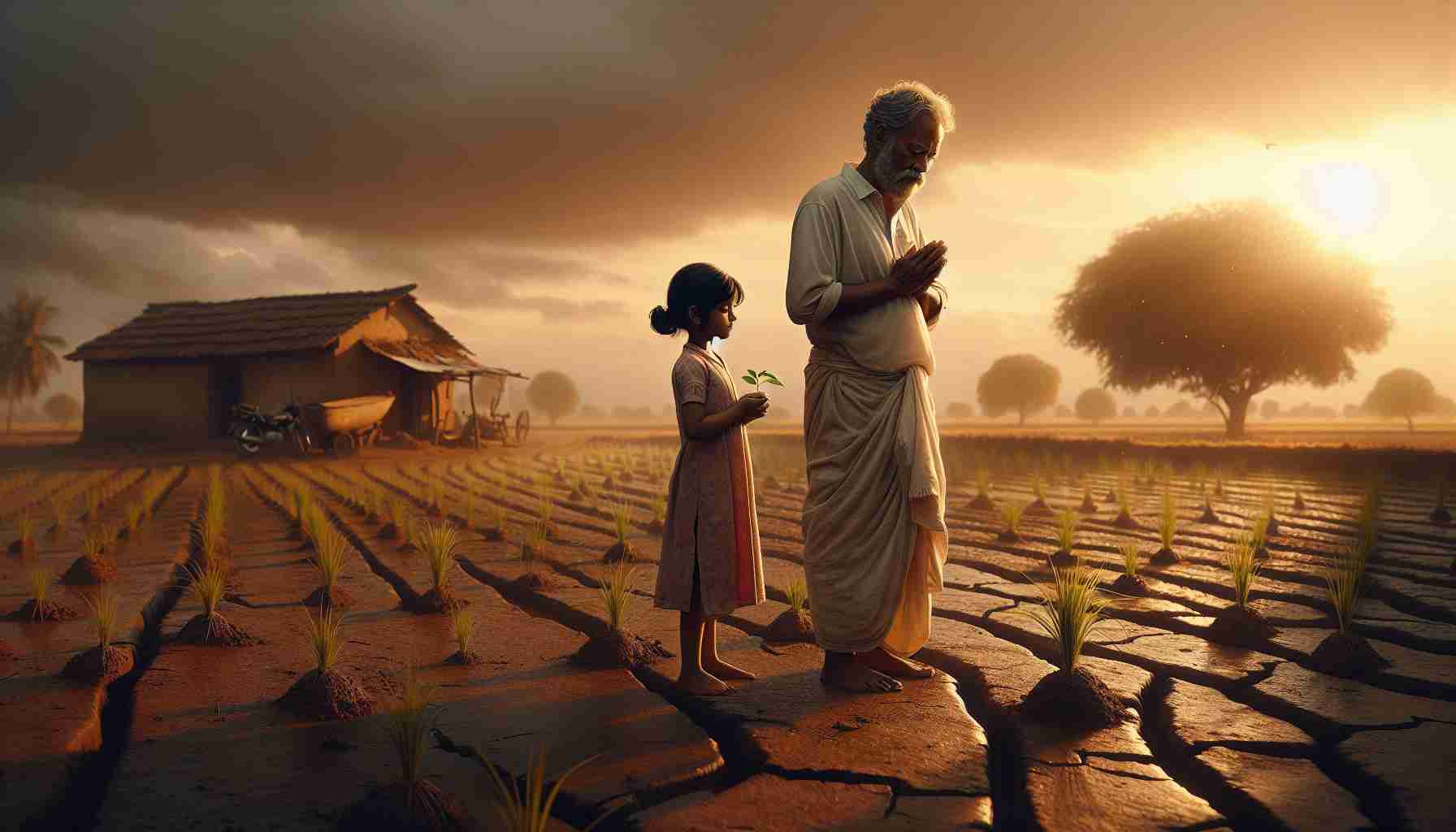

I am Maya, daughter of a rice farmer from a small village near the banks of the Godavari. My story isn’t extraordinary. It's just what happened one monsoon that wouldn’t come.
The summer had left our fields dry, and Baba—my father—watched the skies each day. His hands were cracked from tilling soil that gave nothing back. I was sixteen and naïve, always thinking hope came only where signs showed. That year taught me otherwise.
One day, I found Baba kneeling in the cracked earth, palms pressed together in silent prayer. I had seen him do it many times before, but something about that moment—his stillness while everything around him crumbled—stayed with me. “Why plant, Baba?” I asked quietly, “when you don't even know if the rains will come?”
He smiled faintly, brushing a layer of dust off a small sapling he had just placed in the ground. “Because Krishna taught us to act, not for outcome, but from duty,” he said. He quoted from the Bhagavad Gita then: “Karmanye vadhikaraste, Ma phaleshou kada chana”—we have the right to our actions, but not to the results.
I didn’t answer, only walked away annoyed. What good was duty when the soil gave no grain and our home echoed with hunger?
Weeks passed. The skies teased us with clouds that never poured. I tried not to cry when Ma mixed more water into the dal to make it stretch. And then one late afternoon, I saw something—two green leaves breaking through the soil just outside our door. They were from the sapling Baba had planted. I knelt and touched them gently, blinking back surprise.
Later, I remembered a line Ma used to recite from the Kathopanishad: “Shraddha and Bhakti open paths where none are visible”—faith and devotion make a way, even when no way is seen. Maybe that’s what Baba had. Not blind belief, but living trust.
I started planting little things too—tiny tulsi seeds in broken pots, even though they sat under the same sun-swallowed sky. And still, the rain didn’t come. But the tulsi sprouted anyway. Then, one afternoon, a little boy from the next house came with his cupped hands, offering me his only mango because “you planted plants and made them grow.” He didn’t see the dryness—I suppose he just saw the small green things and believed.
In that moment, I understood what Ramayana meant when it said: “Hope is the seed of every battle worth facing.” Rama, wandering the forests, didn't know if he’d ever return to Ayodhya—but he kept walking with dharma in his heart.
I never did see a full harvest that year. But the hope? It rooted deep.
Now, every year, I still plant—even when the clouds hide. Because sometimes, Krishna's grace comes not in what grows, but in what grows within.
I am Maya, daughter of a rice farmer from a small village near the banks of the Godavari. My story isn’t extraordinary. It's just what happened one monsoon that wouldn’t come.
The summer had left our fields dry, and Baba—my father—watched the skies each day. His hands were cracked from tilling soil that gave nothing back. I was sixteen and naïve, always thinking hope came only where signs showed. That year taught me otherwise.
One day, I found Baba kneeling in the cracked earth, palms pressed together in silent prayer. I had seen him do it many times before, but something about that moment—his stillness while everything around him crumbled—stayed with me. “Why plant, Baba?” I asked quietly, “when you don't even know if the rains will come?”
He smiled faintly, brushing a layer of dust off a small sapling he had just placed in the ground. “Because Krishna taught us to act, not for outcome, but from duty,” he said. He quoted from the Bhagavad Gita then: “Karmanye vadhikaraste, Ma phaleshou kada chana”—we have the right to our actions, but not to the results.
I didn’t answer, only walked away annoyed. What good was duty when the soil gave no grain and our home echoed with hunger?
Weeks passed. The skies teased us with clouds that never poured. I tried not to cry when Ma mixed more water into the dal to make it stretch. And then one late afternoon, I saw something—two green leaves breaking through the soil just outside our door. They were from the sapling Baba had planted. I knelt and touched them gently, blinking back surprise.
Later, I remembered a line Ma used to recite from the Kathopanishad: “Shraddha and Bhakti open paths where none are visible”—faith and devotion make a way, even when no way is seen. Maybe that’s what Baba had. Not blind belief, but living trust.
I started planting little things too—tiny tulsi seeds in broken pots, even though they sat under the same sun-swallowed sky. And still, the rain didn’t come. But the tulsi sprouted anyway. Then, one afternoon, a little boy from the next house came with his cupped hands, offering me his only mango because “you planted plants and made them grow.” He didn’t see the dryness—I suppose he just saw the small green things and believed.
In that moment, I understood what Ramayana meant when it said: “Hope is the seed of every battle worth facing.” Rama, wandering the forests, didn't know if he’d ever return to Ayodhya—but he kept walking with dharma in his heart.
I never did see a full harvest that year. But the hope? It rooted deep.
Now, every year, I still plant—even when the clouds hide. Because sometimes, Krishna's grace comes not in what grows, but in what grows within.